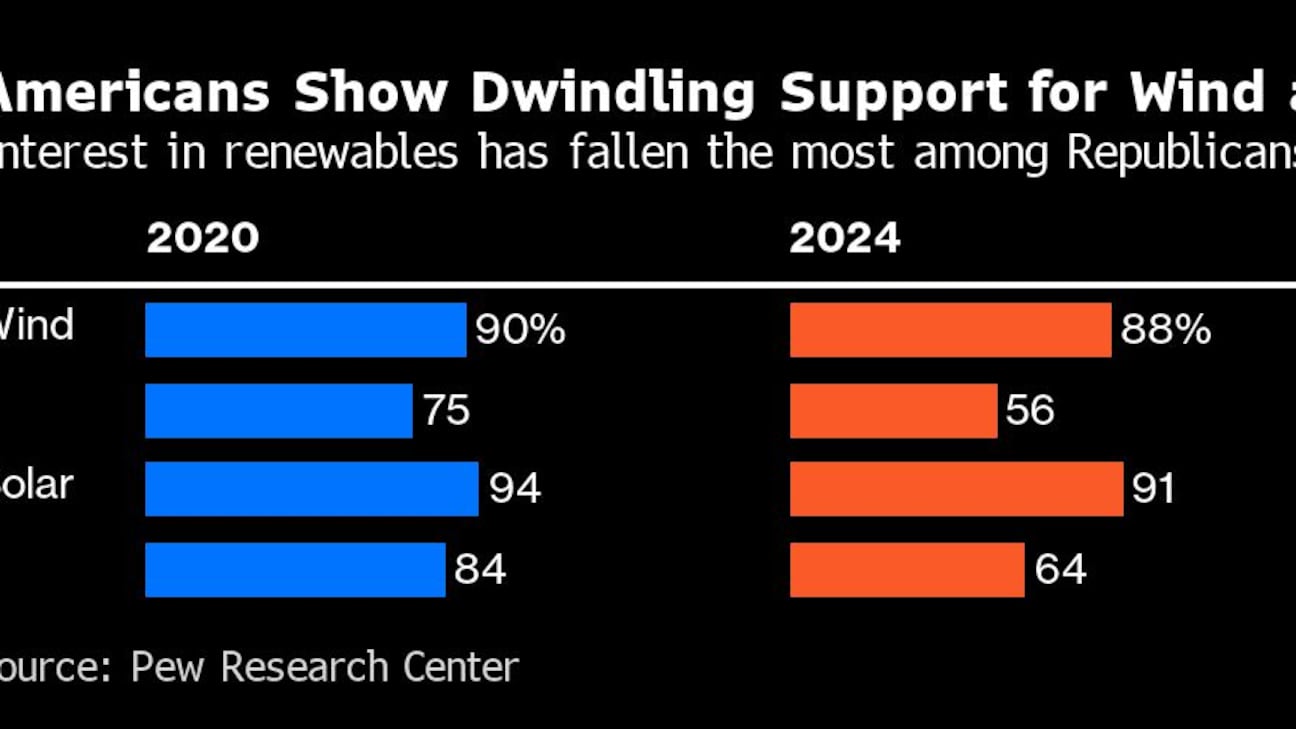(Bloomberg) -- American support for renewable energy and electric vehicles is fading with Republicans leading the decline, deepening a partisan divide on clean energy initiatives ahead of November’s US election, according to Pew Research Center.
Support for more solar farms has fallen from 90% four years ago to 78% as of May, while interest in expanding wind farms has fallen from 83% to 72% in that period, the Washington-based group said Thursday in its latest report. The decline was particularly pronounced among Republicans, with one in five fewer showing support for those renewable energy sources than in May 2020.
“For several years climate change has been a very low priority for Republicans, they have less concern about the issue and are more inclined toward the economic impact,” Pew’s Alec Tyson, one of the authors, said in an interview. “What’s new is the level of polarization and energy priorities in the survey, which is larger than we’ve seen in the past.”
The issues loom large in the presidential election, with both President Joe Biden and presumptive Republican nominee Donald Trump highlighting starkly different visions for the future of US energy. The contrast is likely to be on display during the first presidential debate Thursday evening.
This partisan divide has deepened notably since Congress passed the Inflation Reduction Act, raising concerns about the pace of renewables growth and jeopardizing federal backing. That declining public support can pose a significant threat to ongoing investments in clean-energy technologies, with billions of dollars already allocated to advance solar, wind and EV infrastructure.
The Pew report, titled How Americans View National, Local and Personal Energy Choices, also shows tempered interest in EVs, with surveyed respondents showing reluctance to embrace initiatives aimed at phasing out gas-powered vehicles. Three in 10 Americans would consider buying an EV. The survey also showed 83% of Republicans oppose rules to expand EV sales compared to 35% of Democrats.
Automakers have been pulling back big bets on EVs as consumers recoil from pricey plug-in cars. Ford Motor Co. is cutting EV spending by $12 billion and delaying new battery-powered models and factories, while market leader Tesla Inc. has slashed EV prices and seen profit margins shrink.
--With assistance from Jennifer A. Dlouhy and Ryan Beene.
©2024 Bloomberg L.P.
